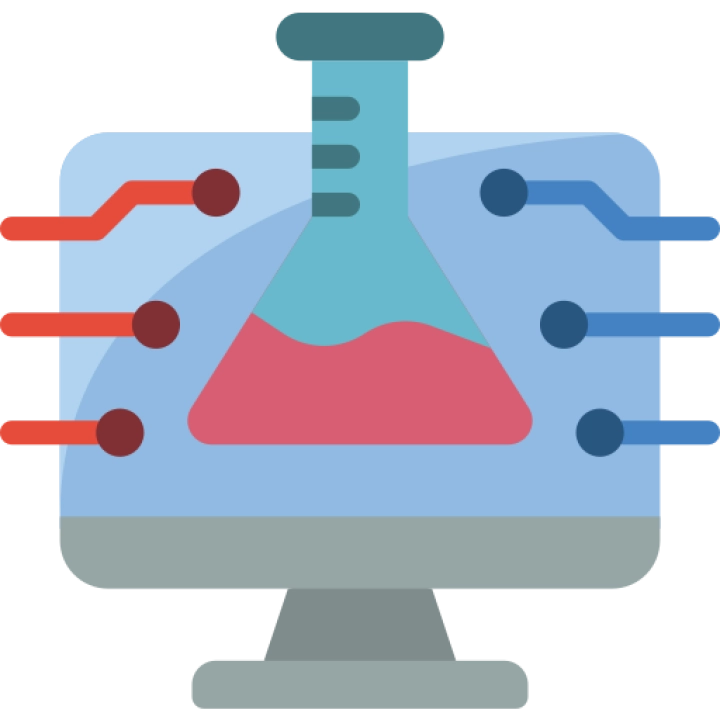College: Health Sciences
This major provides a comprehensive understanding of laboratory technology principles and practices. Students explore key areas such as clinical diagnostics, biomedical research, chemical analysis, and quality control. The program focuses on technical skills, accuracy, and the application of scientific methods to conduct experiments, analyze data, and support research and healthcare. Graduates are prepared for careers in medical laboratories, research institutions, pharmaceutical companies, and industrial laboratories.
Learning Objectives:
- Understand the basics of laboratory techniques and equipment.
- Develop skills in conducting experiments and analyzing biological, chemical, and clinical samples.
- Learn laboratory safety techniques and quality control measures.
- Explore the role of laboratory technology in diagnostics, research, and industry.
- Understand data analysis principles and reporting in laboratory settings.
- Analyze challenges and opportunities in the field of laboratory technology.
- Develop teamwork and problem-solving skills in laboratory work.
Main Outline:
- Introduction to Laboratory Technology - Overview of the field, its history, and applications in healthcare and research.
- Laboratory Safety and Ethics - Study of safety protocols, risk management, and ethical considerations in laboratory work. - Techniques to ensure a safe and compliant laboratory environment.
- Clinical Laboratory Techniques - Basics of clinical diagnostics, including hematology, microbiology, and immunology. - Techniques for analyzing blood, urine, and other clinical samples.
- Chemical Analysis and Instrumentation - Principles of chemical analysis using techniques such as chromatography and spectroscopy. - Techniques for operating and maintaining laboratory instruments.
- Biomedical Research Methods - Study of cell culture, molecular biology, and genetic analysis techniques. - Techniques for conducting experiments and interpreting research data.
- Quality Control and Assurance - Fundamentals of quality control procedures and standards in laboratory environments. - Techniques to ensure accuracy and reliability in laboratory results.
- Data Analysis and Laboratory Information Systems - Principles of data collection, analysis, and reporting in laboratories. - Techniques for using Laboratory Information Management Systems (LIMS).
- Specialized Laboratory Techniques - Exploration of advanced techniques like PCR, ELISA testing, and flow cytometry. - Techniques for applying specialized methods in diagnostics and research.
- Emerging Trends in Laboratory Technology - Analysis of innovations such as automation, artificial intelligence, and point-of-care testing. - Techniques for adapting to new trends and technologies in the field.
- Capstone Project in Laboratory Technology - A practical project to apply skills acquired in laboratory analytics, research, or diagnostics. - Techniques for delivering a comprehensive laboratory solution.
Assessment Methods:
- Laboratory experiments and practical evaluations.
- Written assignments on laboratory techniques, safety, and data analysis.
- Group projects in laboratory research and quality control.
- Participation in internships or fieldwork with medical, research, or industrial laboratories.
Recommended Textbooks:
- "Clinical Laboratory Science: The Basics and Routine Techniques" by Mary Louise Turgeon.
- "Basic Clinical Laboratory Techniques" by Barbara H. Estridge and Anna P. Reynolds.
- "Principles and Techniques of Biochemistry and Molecular Biology" by Keith Wilson and John Walker.
- "Quality Assurance in Pathology Laboratory" by Stacey E. F. Melanson and Michael Laposata.
Prerequisites:
A basic knowledge of biology, chemistry, and mathematics is recommended. Suitable for students in health sciences, biology, chemistry, and related fields.
Duration of the Major:
Typically 2 to 4 years, depending on the program, including coursework, laboratory work, and internships.
Certification:
Graduates may obtain a degree in laboratory technology or a related field and may seek additional certifications (e.g., Medical Laboratory Technician, ASCP Certification).
Target Audience:
Aspiring laboratory technicians, research assistants, and healthcare professionals looking to specialize in laboratory analytics, diagnostics, and research.
This major provides students with the technical, analytical, and practical skills necessary to excel in laboratory technology, supporting advancements in healthcare, research, and industry.


